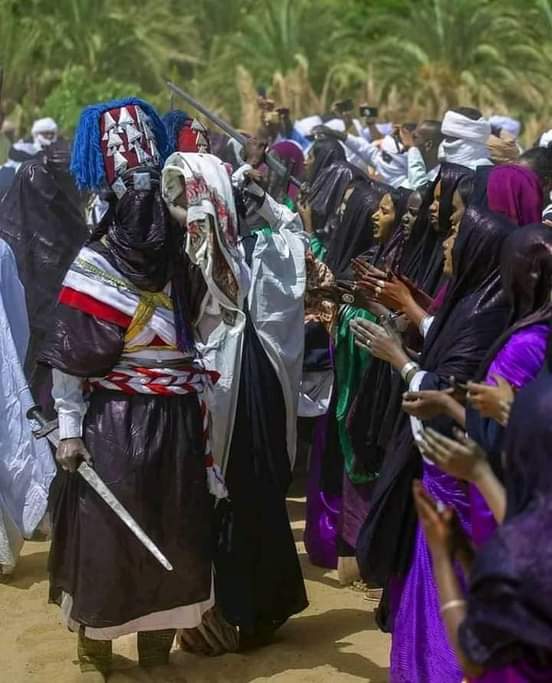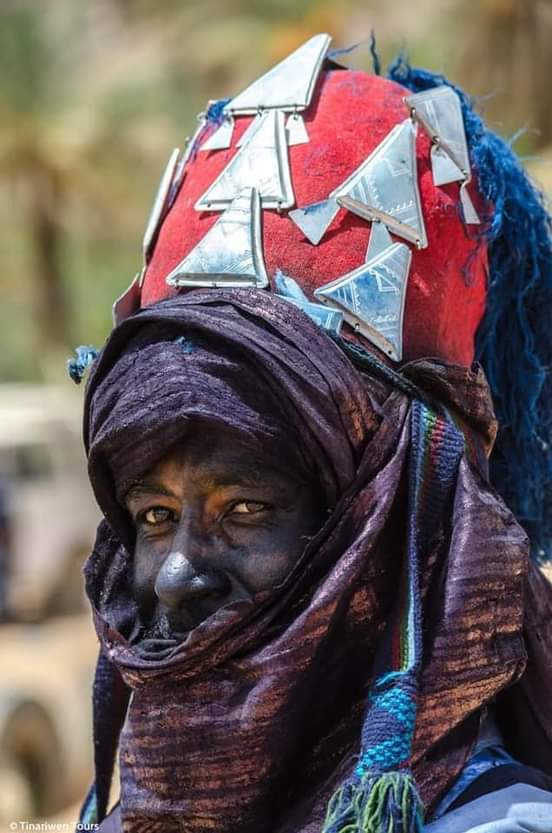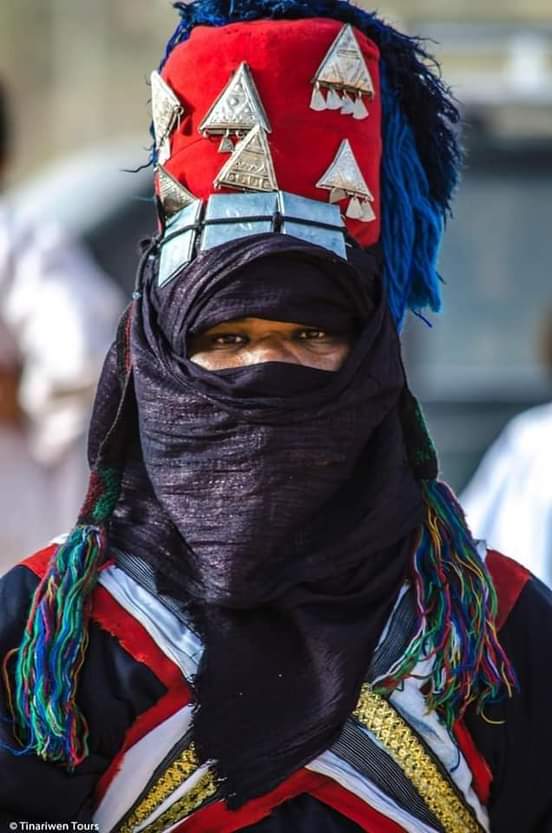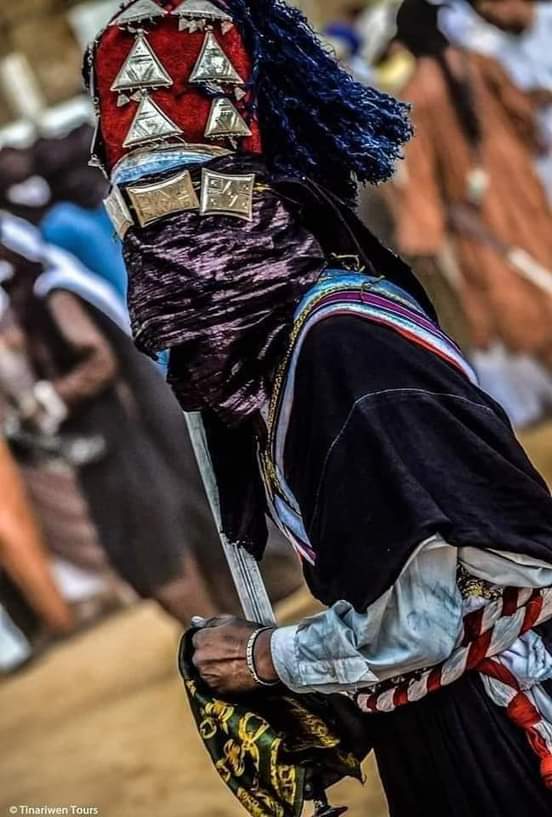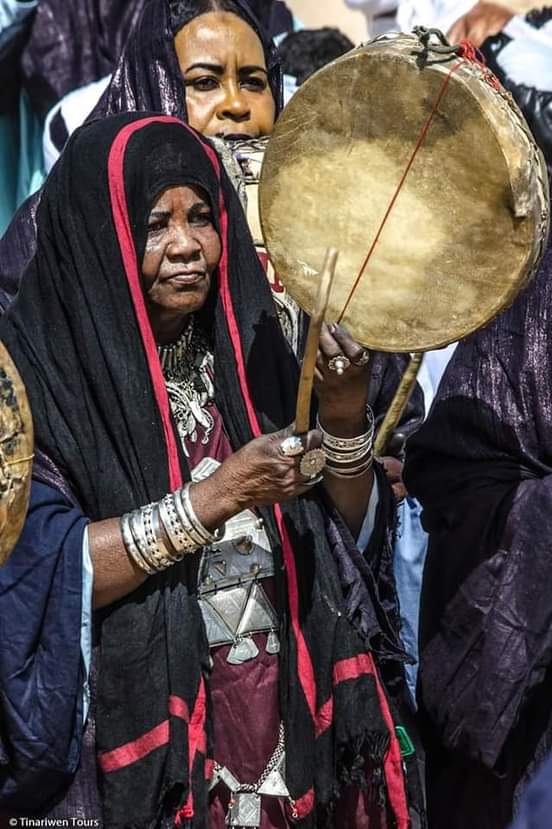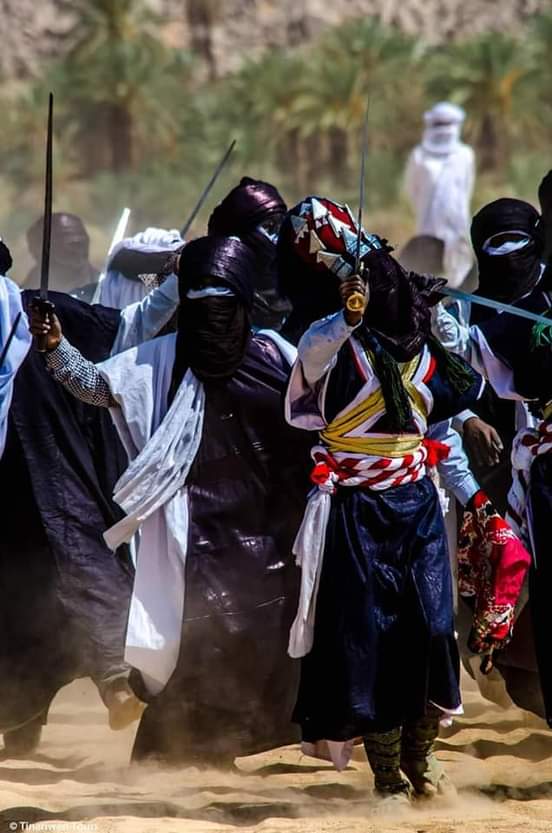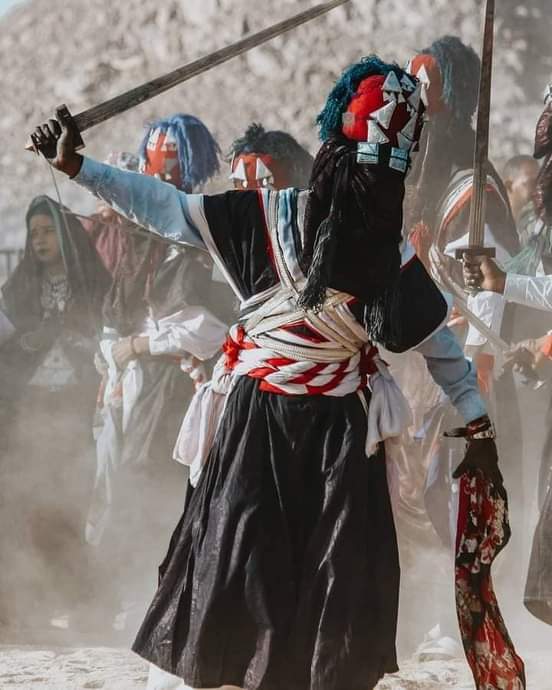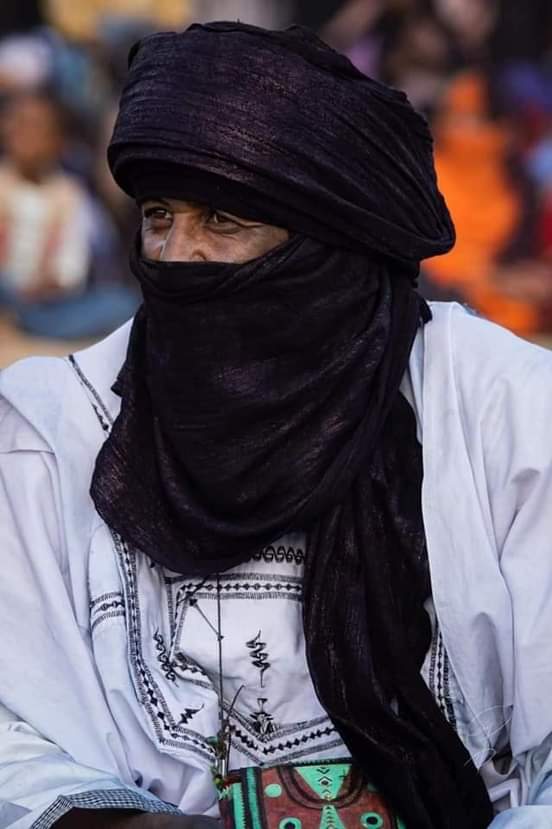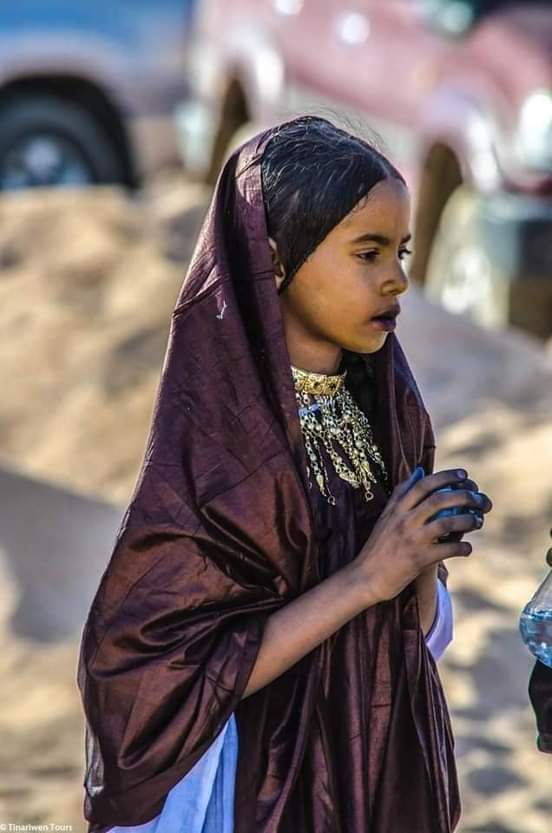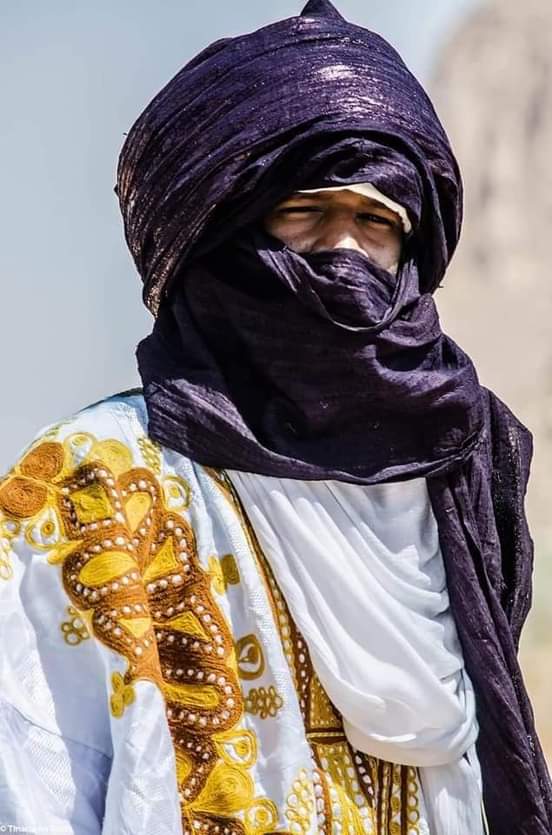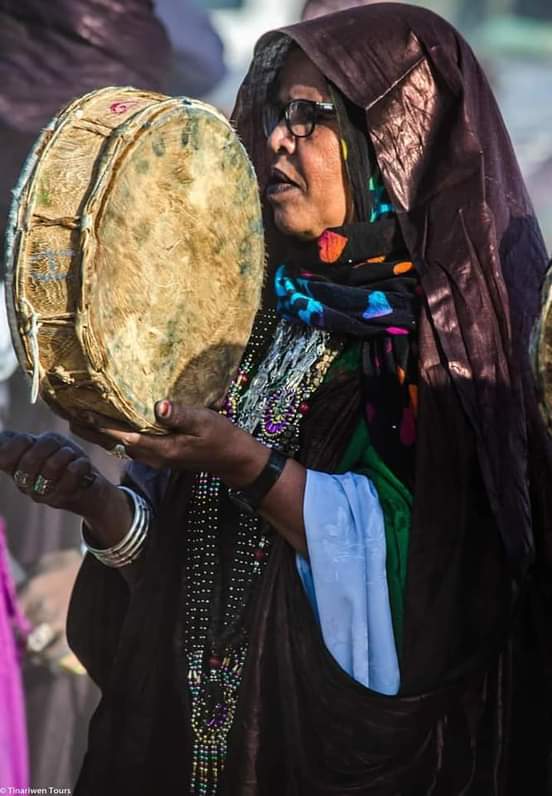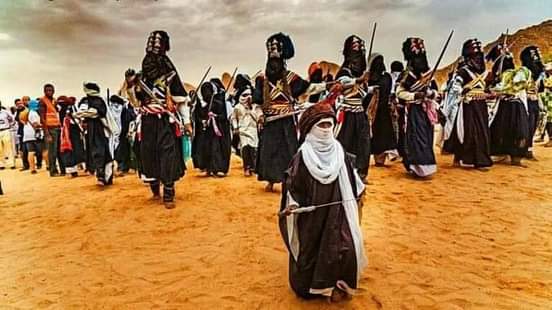Festival Of Touaregs from 13 to 18 July , 2024.
SEBEIBA, a heritage classified as world heritage by UNESCO, commemorated by the two oldest tribes of the oasis of Djanet Kel- Zalouaze and Kel- Almizan and remains the third tribe of Kel- Adjahil as a spectator, Sebeiba is an artistic painting that represents a bloodless war between the last two tribes in a specific place, Doyya.
Women play the Drums with other women clap and sing, dress up costumes traditional specials with their silver jewelry.
The men dance with swords in hand and scarf in the other hand following the rhythm of Singing women also dress up in special traditional costumes.
All these shows represent a peaceful war and the victory of the prophet Moses over the pharaoh Ramses II, according to the oral narrations of Djanetiens.
Sebiba Festival Trip
To the rhythm of gangas and dinghies, the Sebiba Festival welcomes you to Djanet with its songs, dances and Takouba-style struggles. A unique experience in total immersion with the inhabitants of the oasis.
Inscribed in 2014 by UNESCO on the Representative List of the Intangible Cultural Heritage of Humanity, the Sebiba Festival
https://ich.unesco.org/fr/RL/le-rituel-et-les-crmonies-de-la-sebeba-dans-l-oasis-de-djanet-algrie-00665
Sebiba السبيبا ⵙⴱⵉⴱⴰ is a Tuareg ceremony taking place every beginning of the year in Djanet, according to the Muslim lunar calendar, on the first day of the month of Muharram and until Achoura. More than 3000 years old, the origin of this festival dates back to a fratricidal war waged between 2 tribes of Tassili n’Ajjer which ended the day the news of Moses’ victory over the Pharaoh reached them. A symbol of peace and union, the Sebiba Festival now seals the agreement between the Oraren and the Traor’fitt.
For 10 days, the Sebiba ritual and ceremonies are practiced by the inhabitants of El Mizân and those of Azelluwaz, two districts of Djanet. Dancers and singers compete in the “Timoulawine” competition. The men gauge each other and provoke each other, the sword in one hand and the scarf in the other to express confrontation and peace. The women surround the warriors, sing to the rhythms of the gangas (tambourines) and launch ululations of encouragement to electrify the fighters whose steps raise clouds of sand. At the end of the competition, the victorious warriors participate the next day in the Sebiba ritual. Passed down by previous generations, the Sebiba rites are a unique opportunity to admire the traditional ornaments, clothing and headdresses of Tuareg women and men, as well as weapons and musical instruments made and maintained by blacksmiths and other local artisans.
The Sebiba Festival is an important link between the Tuareg tribes of the Algerian Sahara, sublimating cultural identity thanks to this artistic confrontation.
This circuit takes you to the heart of the preparations and festivities of the Sebiba Festival while combining a discovery of the oasis of Djanet and its surroundings with the guelta of Essendilène, the arch of Tikoubaouine, the ksours of Djanet, the rock teeth of Timghas and the famous crying cow of Tegharghart.
ITINERARY:
Day 1: Paris-Djanet
Flight from France to Djanet. Arrival at night, welcome by our agency team and short transfer to your camp for the first Saharan night.
Transfer: 4×4 • overnight stay: in camp at Oued Kanfar
Day 2: Djanet the capital of South Tassili n’Ajjer
After waking up late to recover from travel fatigue, your guide drives you to the Tassili n’Ajjer National Park Museum and takes care of the paperwork during your visit. The day is free and punctuated by a few discoveries of historical sites.
Transfer: 4×4 & walks • Overnight: in camp in Tisras
Days 3 Djanet – Preparations for the Sebiba
Your guide accompanies you for the visit of the ksar of Azelluwaz and will be your interpreter during the meeting with the scholars of Kel Azelluwaz, bearers and storytellers of the history of the Sebiba. In the evening, you participate in the preparations for the Sebiba in Azelluwaz and El Mizân in the company of warriors and frenzied singers. The next day, it is time to meet this time the opposing clan with the visit of the ksar of Tïghourfit then the introduction to the leaders of the Kel El Mizân troupe. Another atmosphere where you may already be able to bet on the winner of the Sebiba between the 2 clans. In the evening, the warriors, accompanied by the songs and ululations of their supporters, deliver their duel with the sword.
Transfers: walks in the town of Djanet • Nights: in hotel.
Day 4: Djanet – Essendilene – Tililine – Djarf Amoud
4x4s are waiting for you to drive you to the Oued of Essendilène (105km). You walk through the guelta of Essendilène, a luxuriant oasis bordered by oleanders and nestled in the hollow of the cliff. Then comes the site of Tikoubaouine composed of obelisks and sandstone arches scattered in the undulations of the sand. The Tikoubaouine Arch is a pretty « postcard » stopover where you can appreciate the rocky setting eroded by winds and water. The visit continues to Timghas in Edi and its fauna. Overnight at Bivouac
5 day: your desert ships stand ready for the visit of Tisras and Aklamou following the wadi of Djanet. The occasion of the Sebiba is ideal to discover the oasis perched on the back of a camel. The most beautiful camelids in the area also come together during this celebration and adorn themselves with their most beautiful Tuareg saddles. In the evening, the Sebiba festivities are in full swing and you join the joyous ceremony to attend the song and dance duels of the Kel El Mizân versus the Kel Azelluwaz.
Transfer: Overnight at Hotel.
Day 6: Sebiba Festival
D-Day has finally arrived! The great Sebiba ceremony takes place before your eyes with its artistic jousting and mock fights. The women sing to the rhythm of tambourines while the « warrior » men dance, all dressed in their finest finery, silver jewelry and shimmering fabrics for the former, traditional clothes, sword and scarf for the latter. After a morning under the festivities, you are invited at the inhabitant for a family lunch in all simplicity. A good siesta later, here you are back on the scene of the Sebiba festival for the closing and the promise to meet again next year. The last evening continues at the camp to the rhythm of Tuareg music and under the enticing smell of barbecue being cooked.
Transfers: Overnight return to Hotel.
Day 7: petrified fingers emerging from the sand before reaching Oued Tegharghart, near Djanet and the place where the famous rock engraving of « the crying cow » resides. The heat of the summer period does not allow hiking in the middle of the day, but nothing prevents a night hike, under the light of the moon and/or your headlamps. At night, the desert is adorned with a completely different atmosphere with its sandstone colossi and the nightlife of little Djanet.
Transfer to the airport. Return flight to Paris
The price per person of this Party Circuit in Djanet in Algeria, includes:
– The Flight Paris / Djanet A/R
– Airport assistance by our agency team in Djanet.
– Transfers in 4×4.
– 01 night hotel in Djanet on arrival.
– 03 nights accommodation in Bivouac.
– 02 nights hotel in Djanet on departure.
– Full board.
– 4×4 car + driver + cook.
– Guide throughout the tour.
– Ongoing logistical support.
– The price per person of this 4×4 Desert Tour in Algeria does not include:
– The International Flight / Paris Djanet /R.
– The visa for Algeria is 110 € to be paid in cash at the Airport.
– personal extras and expenses.
– Multi-risk cancellation and repatriation insurance – Sleeping bag and tent are not provided
TRANSPORTATION :
Air transport Flight with stopover Paris > Algiers > Djanet > Algiers > Paris. Province departures possible – contact us. Passport & visa Passport valid and valid for 6 months after the date of return from your trip to Algeria. Mandatory visa – issued on your arrival in Djanet. As part of our tours, we take care of the issuance of your tourist visa by our internal services.
